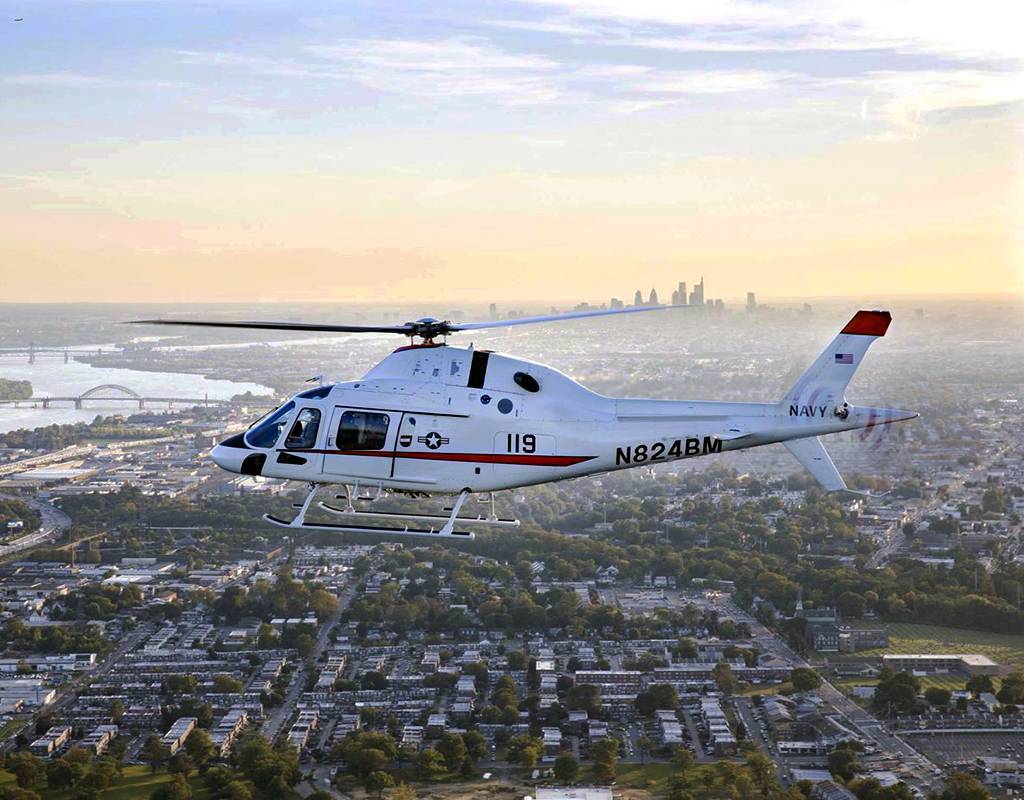
Leonardo Helicopters is cleared to fire up its TH-119 U.S. Navy trainer production line now that the U.S. government has denied a protest by Airbus Helicopters of the potential $648 million contract.
The Navy in January chose Leonardo’s TH-119, based on the commercial AW119, over the Airbus H135 and Bell 407GXi to replace the aging TH-57 Sea Rangers on which all Navy, U.S. Marine Corps, and U.S. Coast Guard rotorcraft pilots are trained..
Advertisement
Airbus filed a protest with the U.S. Government Accountability Office (GAO) on Feb. 3, arguing that its twin-engine H135 was not properly considered to replace the aging TH-57 Sea Ranger.
That protest halted TH-119 production at Leonardo’s Philadelphia, Pennsylvania, plant until GAO ruled on the protest. Though a decision was not due until June 22, GAO denied the protest on May 12, freeing Leonardo to continue building the single-engine helicopters.
“On Tuesday, the U.S. Government Accountability Office denied the protest of the Navy’s contract award of the Advanced Helicopter Training System (AHTS) program to Leonardo,” a Leonardo spokesperson said in a statement. “As a result, Leonardo has immediately resumed work on AHTS in Philadelphia, readying the next generation of U.S. Naval Aviators.”
An initial $176.5 million outlay awarded to Leonardo in January covers the first 32 aircraft plus spare parts, support equipment, flyaway kits, hoists, sling loads, maintenance and instructional data, and training for maintenance personnel.
Advertisement
The total contract value is $648.1 million for the procurement of 130 TH-73As to replace the TH-57 fleet. Helicopter deliveries are scheduled to begin in calendar year 2020 and continue through calendar year 2024.
Few details of GAO’s reasoning for the denial are available. The protest is covered by a protective order, meaning the parties have to agree on a redacted version of the decision before it is publicly released.
Airbus stood out in the competition for offering the twin-engine H135, which is more expensive upfront and more costly to operate. The company made the argument that the H135 was more representative of the advanced fleet aircraft pilots would fly after graduation from flight training, like the twin-engine Sikrosky MH-60 and CH-53 helicopters, Bell AH-1Z Viper and UH-1Y Venom, and the Bell-Boeing V-22 Osprey.
Airbus did not immediately respond to a request for comment. Bell, which built the legacy TH-57 Sea Ranger, did not protest Leonardo’s win.


